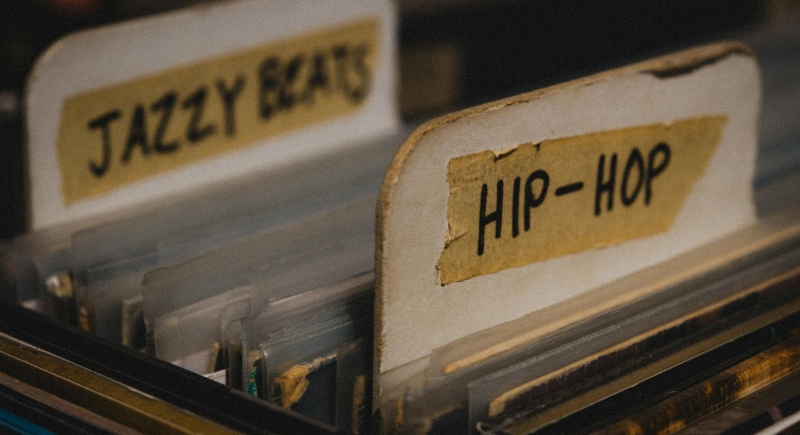18 Common Words You Use Every Day That Aren’t Actually English
Ever stop to think about how many words you use every day that didn’t actually start out in English? The truth is, English is like a patchwork quilt—it’s been stitched together over hundreds of years using pieces from other languages. It borrowed tons of words from Latin, French, German, and many more. So, many of the words we think of as totally English have surprising roots elsewhere. They’ve had quite the journey before landing in our everyday conversations.
Alligator

Credit: Wikimedia Commons
Spanish explorers called it “el lagarto”—”the lizard”—after spotting the massive reptiles in Florida. English speakers, hearing it secondhand, mashed it into “alligator.” That’s how a Spanish phrase ended up as the official name of a prehistoric-looking beast. It was simply a misheard nickname stuck like swamp mud to a boot.
Avocado

Credit: flickr
This green fruit has ancient roots in Nahuatl, the Aztec language. The original word, “āhuacatl,” literally meant “testicle,” probably thanks to its shape. Spanish colonizers softened it to “aguacate,” which the English later turned into “avocado.” It’s nothing fancy or scientific, only a fruit with a wild backstory and a very awkward etymology.
Brainwash

Credit: pexels
“Brainwash” isn’t some old-school English metaphor. It comes from the Chinese phrase “xǐ nǎo,” meaning “wash brain.” American journalists used it to describe communist re-education tactics, and it quickly caught on. These days, it’s tossed around in everything from cult documentaries to Twitter threads—but it started as war slang.
Burrito

Credit: Wikimedia Commons
“Burro” is a Spanish word that literally translates to “little donkey.” The Mexican dish burrito got its name either from its rolled-up shape or because street vendors once packed them like donkeys packed goods. The theory’s murky, but the word is 100% Spanish. And somehow, this humble tortilla rollup ended up as a fast-food icon with cult-like devotion.
Cul-de-sac

Credit: Wikimedia Commons
Straight out of French, the term “cul-de-sac” precisely means “bottom of a sack.” Instead of saying “dead-end street,” English speakers borrowed the fancier-sounding version. City planners love it, GPS systems hate it, and homeowners swear it means peace and quiet. Whatever your take, you’re using French every time you say it.
Disinformation

Credit: Canva
The word disinformation isn’t simply a fancier cousin of “misinformation.” It’s actually rooted in the Cyrillic script “дезинформация,” translating to “dezinformatsiya,” a Cold War term for strategic lies and propaganda. The Soviets used it as a tool of psychological warfare. It slid into English during the 20th century and has since become a political buzzword.
Diva

Credit: Canva
Borrowed from Italian, “diva” originally meant “goddess.” It described legendary female opera singers, the kind who brought audiences to tears—and occasionally terrorized conductors. Over time, the term escaped the opera house and headed for Hollywood. Now, it labels anyone with talent, flair, and a habit of throwing tantrums in designer heels.
Emoji

Credit: Canva
Born in Japan, “emoji” combines “e” (picture) and “moji” (character). Don’t confuse it with “emotion”—that’s only a happy accident. Japanese mobile companies created emojis in the 1990s to add flavor to text. The rest of the world caught on fast.
Fiasco

Credit: Getty Images
This disaster of a word came from Italian theater slang. “Fiaschi” means “bottle,” and actors used “far fiasco” (to make a bottle) to mean a performance gone embarrassingly wrong—like spilling a bottle onstage. English speakers snagged the word and turned it into the go-to term for any mess that unfolds in a spectacular, chaotic fashion.
Genre

Credit: pexels
Pronounced the French way, this word doesn’t get the English treatment. “Genre” means “type” or “kind,” although it directly translates to “gender.” The French handed it to the English-speaking world, mostly for art and literature. It lives everywhere—from movie trailers to Spotify categories. Use it right, or risk sounding like someone who still burns CDs.
Mortgage

Credit: Canva
The word “mortgage” sounds boring until you learn it means “death pledge.” In Old French, “mort” stands for “death,” and “gage” means “pledge.” It refers to a loan that either dies when it’s paid or kills your ownership if you default. So, every time you pay your mortgage, remember that it’s linguistically cursed.
Motto

Credit: Getty Images
It might sound English enough, but “motto” actually comes from Italian, where it simply means a short saying or word. Nobles and knights used them as guiding phrases. Businesses and schools eventually copied the trend in the late 16th century. Since then, it’s become the thing slapped on mission statements and college banners to sound deep.
Nachos

Credit: Wikimedia Commons
The credit for this word goes to Ignacio “Nacho” Anaya, a maître d’ in Mexico. In 1943, he whipped up a quick snack for hungry guests using fried tortillas, cheese, and jalapeños. When asked what it was called, he said, “Nacho’s special.” The surprise and the name stuck.
Rucksack

Credit: pexels
This word isn’t a fancy synonym for “backpack”—it’s the German original. “Rücken” means “back,” and “Sack” means “bag.” British soldiers picked it up and brought it into English. It’s mostly used in military or hiking contexts but still packs all the efficiency and grit of its German roots.
Savvy

Credit: pexels
Sailors in the Caribbean picked this one up from the Spanish word “sabe”—”he knows.” It traveled through Creole and pidgin English until it became “savvy,” meaning street-smart or sharp. However, it’s rooted in Latin’s “sapere” (taste).
Piano

Credit: pexels
Straight from Italian, “piano” comes from “pianoforte,” meaning “soft-loud.” Early pianos could play notes both quietly and loudly, unlike earlier instruments. Musicians shortened the name, and now “piano” rolls off the tongue in every language. So, next time you hear a piano solo, thank Italian inventors for the music—and the word.
Ketchup

Credit: pexels
This burger essential has messy linguistic roots. “Ketchup” refers to the Chinese word “ke-tsiap,” a fermented fish sauce. British traders loved it but swapped the recipe to suit European tastes. Tomatoes showed up much later. The word survived the recipe change, morphing into the sweet, red condiment everyone squirts without a second thought.
Robot

Credit: Getty Images
The word robot didn’t come from science labs or English imagination. It entered the language from Czech in 1920, thanks to a play by Karel Čapek. The term comes from “robota,” meaning forced labor. It originally described workers with no choice, not shiny machines or friendly helpers.